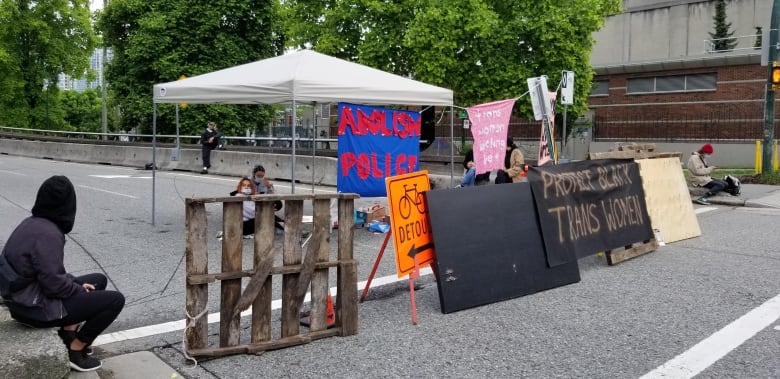Nicole Thompson
The Canadian PressStaff
Published Saturday, June 13, 2020

Peter Russell, the 18th-century government official pictured above. The Mayor of the township of Russell has decided to change the 'Russell' that the town will be named after. (Photo courtesy of Ontario Archives)
An eastern Ontario township is preparing to turn its back on the slave owner it's named for.
It just won't turn its back on the name.
Mayor Pierre Leroux says Russell Township had been the subject of online scorn over the past week because it was named for Peter Russell, an 18th-century government official who delayed the abolition of slavery.Related Stories
Some called for the name to be changed, while others said it should remain the same.
Leroux says he and his 18-year-old son came up with a different solution: choose a new Russell.
Leroux plans to bring forward a notice of motion at a council meeting on Monday night, saying residents no longer want their home to be associated with Peter Russell.
He said members of the community will be asked to submit contenders named Russell.
]
“We don't share the values, we never have shared the values, of Mr. Peter Russell, and we're looking to move forward,” he said.
The question of whether to rebrand buildings, streets and towns is part of a broader conversation about systemic racism and Canada and around the world, sparked in part by the death of George Floyd.
Floyd, a Black man, died last month when a white police officer held a knee against his neck for nearly nine minutes, putting the anti-racist movement back in the spotlight.
Elsewhere in Ontario, there have been calls to rename Dundas Street, which was named for Henry Dundas, an 18th-century politician who delayed Britain's abolition of slavery by 15 years. The street runs through Toronto and numerous neighbouring cities and towns.
In Russell, Leroux said, there were a variety of reasons they didn't want to change the name altogether, including the business owners who have built their brands on the town name.
“And if you change the town name, what happens to all these organizations who've built up a reputation for being kindhearted loving people and incredible businesses? You're saying, well, that name is by default still tied to this guy 200 years ago,” he said.
While he said his son came up with the idea on the fly, they later learned there's precedent.
In 1986, King County in Washington State made the same move.
The county was originally named for the slave trader William Rufus DeVane King, but a motion to change the namesake explains that Martin Luther King Jr. is more in line with residents' ideals.
Leroux said he's hoping Russell's residents will also find their perfect namesake.
“I could see school projects where the students talk about what's going on in the world, and they're getting together and they're making submissions on how to move forward and who they think best represents the values we have and the history we have,” he said.
The question of whether to rebrand buildings, streets and towns is part of a broader conversation about systemic racism and Canada and around the world, sparked in part by the death of George Floyd.
Floyd, a Black man, died last month when a white police officer held a knee against his neck for nearly nine minutes, putting the anti-racist movement back in the spotlight.
Elsewhere in Ontario, there have been calls to rename Dundas Street, which was named for Henry Dundas, an 18th-century politician who delayed Britain's abolition of slavery by 15 years. The street runs through Toronto and numerous neighbouring cities and towns.
In Russell, Leroux said, there were a variety of reasons they didn't want to change the name altogether, including the business owners who have built their brands on the town name.
“And if you change the town name, what happens to all these organizations who've built up a reputation for being kindhearted loving people and incredible businesses? You're saying, well, that name is by default still tied to this guy 200 years ago,” he said.
While he said his son came up with the idea on the fly, they later learned there's precedent.
In 1986, King County in Washington State made the same move.
The county was originally named for the slave trader William Rufus DeVane King, but a motion to change the namesake explains that Martin Luther King Jr. is more in line with residents' ideals.
Leroux said he's hoping Russell's residents will also find their perfect namesake.
“I could see school projects where the students talk about what's going on in the world, and they're getting together and they're making submissions on how to move forward and who they think best represents the values we have and the history we have,” he said.
This report by The Canadian Press was first published June 13, 2020.





















